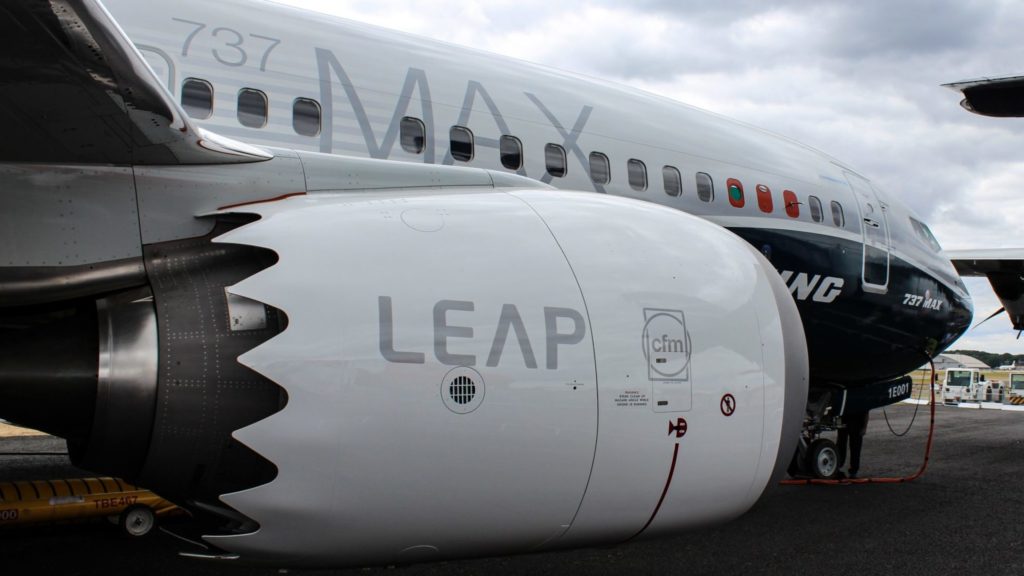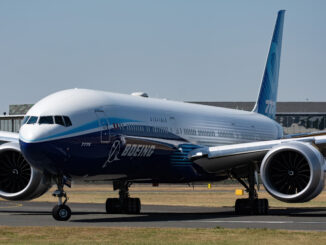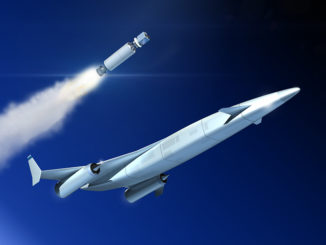
Pressure is growing on the US Federal Aviation Administration (FAA) to follow the rest of the world and ground the Boeing 737 Max 8 fleet following sundays second fatal accident of the type in 6 months.
US Senators and Flight Crew Unions are among those who have called on the FAA to take the safe option and ground the fleet as a precautionary measure to provide certainty to the flying public in the same way that almost every other civil aviation authority around the world has.
The pressure comes after Ethiopian Airlines Flight ET302 crashed on Sunday killing all onboard. Initial information shows similarities to the crash of a Lion Air 737 Max 8 in October last year which has been raised questions about the Angle of Attack sensors and the “Maneuvring Characteristics Augmentation System” (MCAS) system that Boeing has had to create to deal with the flight characteristic changes of the 737 Max.
Airlines have been inundated by questions from passenger over whether there flight is being operated by a 737 Max aircraft with most wanting to avoid flying on the type.
China was the first to ground the 737 Max 8 and the UK’s Civil Aviation Authority acted yesterday, followed by Europe.
Senator Richard Blumenthal was one US senator calling for the FAA to ground the type. He said: “The 737 MAX 8 should be immediately grounded until the FAA can assure us they are safe”.
The Association of Professional Flight Attendants, which represents around 27,000 flight attendants across the US, said that their members were “very concerned with the recent Ethiopian Airlines flight 302 crash, which has raised safety concerns with the 737 MAX 8” while the Transport Workers Union of America, which represents Southwest Airlines staff, wrote to the airline’s CEO asking him to withdraw the type from service until its deemed safe.

The latest statement from the FAA yesterday said: “The FAA continues to review extensively all available data and aggregate safety performance from operators and pilots of the Boeing 737 MAX. Thus far, our review shows no systemic performance issues and provides no basis to order grounding the aircraft. Nor have other civil aviation authorities provided data to us that would warrant action. In the course of our urgent review of data on the Ethiopian Airlines Flight 302 crash, if any issues affecting the continued airworthiness of the aircraft are identified, the FAA will take immediate and appropriate action.”
The FAA certified the Boeing 737 Max 8 as a variant of the Boeing 737-800
It has emerged though that the changes to the aircraft’s design to accommodate the bigger LEAP engines and aerodynamic changes have given the aircraft certain flight characteristics unique to the type. One of these is the tendency to pitch up in certain flight conditions.
This is why Boeing created the MCAS system. In short, when the Angle of Attack sensors detect the pitch up situation, MCAS automatically applies downward trim to counteract it. By design, if the pilot then inputs manual changes to the trim the MCAS system cuts out.
MCAS is one of the systems under scrutiny following the Lion Air crash and appears to be in focus regarding the Ethiopian crash given the preliminary flight information.
Boeing has already admitted it will be releasing a software update for the MCAS in the wake of the preliminary findings of the Lion Air crash.
As it stands, outside of North America, the 737 Max 8 is almost entirely grounded.




